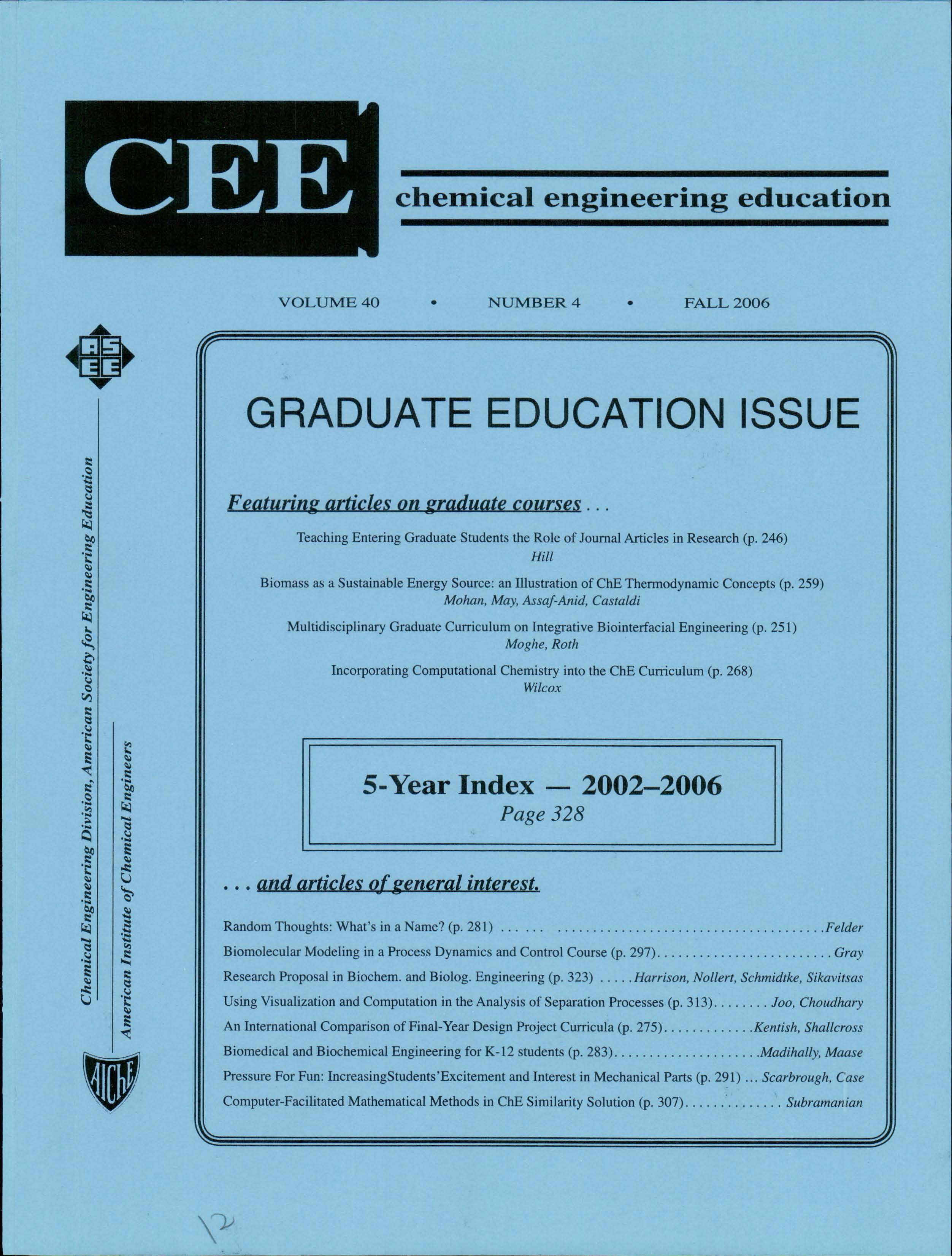Computer Facilitated Mathematical Methods in Chemical Engineering – Similarity Solution
Abstract
High-performance computers coupled with highly efficient numerical schemes and user-friendly software packages have helped instructors to teach numerical solutions and analysis of various nonlinear models more efficiently in the classroom. One of the main objectives of a model is to provide insight about the system of interest. Analytical solutions provide very good physical insight, as they are explicit in the system parameters. Having taught/co-taught applied math for both senior undergraduate and first-year graduate students for five years, the author feels that students do not appreciate the value of analytical solutions because (i) they wrongly feel that numerical methods can be used to solve complex problems using high-speed computers, and (ii) they are not comfortable and confident of doing the complicated integrals, rigorous algebra, and transformations involved in obtaining analytical solutions. In the author’s view, various techniques to obtain analytical solutions can be taught efficiently using computers. For example, the computer algebra systems such as Maple, Mathematica, MATLAB, REDUCE, etc., can be used to perform the tedious algebra, manipulations, complicated integrals, variable transformations, and differentiations, etc. involved in applying various mathematical methods.


